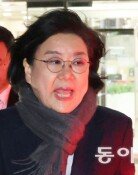[Editorial] Lee, Hu Share Responsibility to Boost Bilateral Ties
[Editorial] Lee, Hu Share Responsibility to Boost Bilateral Ties
Posted May. 28, 2008 03:57,
President Lee Myung-bak held a summit with Chinese President Hu Jintao yesterday in Beijing. They agreed to elevate bilateral ties from a full cooperative partnership to a strategic cooperative partnership. That means that the two leaders agreed not only to strengthen their cooperation in all areas, including economy, diplomacy, national security and environment, but also to work together on global issues, including climate change, terrorism and WMDs.
China has become Koreas largest trade partner in just 16 years since the establishment of diplomatic ties. Korea has become Chinas third or fourth largest trade partner. Considering the deepening of relations, the agreement is only a natural development. Hopefully, closer relations will serve as a pillar of peace and prosperity for Northeast Asia. Moreover, as the six-party talks are scheduled to resume around June 10, the newly enhanced relations are expected to have a positive effect on making progress on the North Korean nuclear issue.
President Lees five-year term is likely to be special for bilateral ties. Chinas fourth-generation leadership is scheduled to maintain power until November 2012. Their term in power corresponds almost perfectly with President Lees term in office. During this period, China needs to lay the foundation to build a middle-class society, while Korea should lay the groundwork to become an advanced country. If the two leaders develop the strategic partnership into a mature one based on deep mutual trust, they will be able to make a win-win situation. In this regard, it is quite significant that the two leaders agreed to shuttle diplomacy which entails meeting for one- or two-day sessions.
Lee is scheduled to meet Chinese Premier Wen Jiabao, chairman of the National Committee of the Chinese People`s Political Consultative Conference Jia Qinlin, and Wu Bangguo, chairman of the Standing Committee of the National People`s Congress, today. It is unusual to meet all four of Chinas most powerful men. There is some speculation within the Chinese leadership that the Lee Myung-bak administration might focus too heavily on pursuing a pro-American policy. President Lee should make a special effort to dismiss this perception.
Only then can a Korea-China partnership serve, not only as leverage for trade with the U.S. and Japan, but also as a safety valve to check Pyongyangs strategy in dealing directly with Washington while excluding Seoul. The presidents visit to China should serve as a foundation that facilitates diplomacy among the four powers surrounding the Korean Peninsula with the aim to resolve related issues.





![“한동훈, 정치생명 걸고 무소속 출마해 평가받는 것 고려할만”[정치를 부탁해]](https://dimg.donga.com/c/138/175/90/1/wps/NEWS/IMAGE/2026/01/19/133186982.1.jpg)

